A Russian-based transnational organized crime drug cartel is responsible for the 20 tons of cocaine seized in Philadelphia in June. But because the organization is Donald Trump’s biggest and most reliable backer in the 2020 Presidential election, there is virtually no likelihood any major figure in the group will ever face charges.
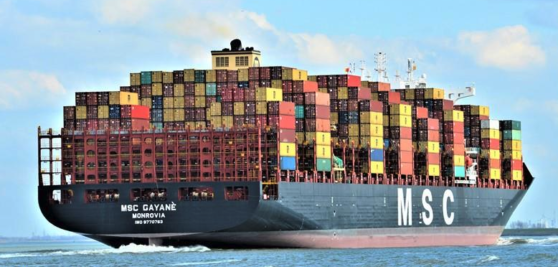 Today the federal government goes to great pains to cover up the particulars of drug trafficking. The FBI, the DEA, and US Customs and Border Protection all treat information with a level of secrecy usually reserved for matters of national security.
Today the federal government goes to great pains to cover up the particulars of drug trafficking. The FBI, the DEA, and US Customs and Border Protection all treat information with a level of secrecy usually reserved for matters of national security.
An example is the huge cocaine bust at the port of Savannah last week. To date, US Customs and Border Protection officials refuse to release the name of the container ship involved.
Another place where it can be seen is in the attempted billion-dollar drug move on the two-block long container ship MSC Gayane at the Port of Philadelphia in the middle of June.
U.S. Attorney McSwain said, “We must do everything we can to dismantle international drug trafficking organizations who destroy the lives of those who are addicted to drugs. That includes aggressive prosecution of those who seek to profit from peddling poison.”
But that may prove difficult. McSwain is a nearly-rabid Trump loyalist. Why that’s important is because the Russian Mob, Trump’s biggest supporters, was behind the 20-ton drug move.
A shockingly partisan US Attorney
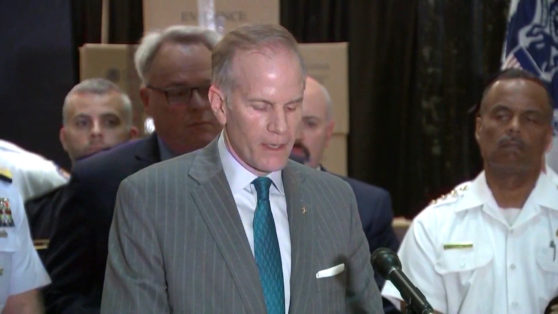 Several months ago President Donald Trump’s top federal prosecutor in Philadelphia launched an extraordinary attack on Philadelphia’s elected district attorney, just hours after a drug suspect shot and wounded six of the city’s police officers.
Several months ago President Donald Trump’s top federal prosecutor in Philadelphia launched an extraordinary attack on Philadelphia’s elected district attorney, just hours after a drug suspect shot and wounded six of the city’s police officers.
William McSwain issued an unusual and inflammatory statement slamming Philadelphia District Attorney Larry Krasner. He said the shooting was “precipitated by a stunning disrespect for law enforcement” that is “promoted and championed by the District Attorney.”
McSwain claimed that Krasner, who has litigated cases in the past against the Philadelphia Police Department, engaged in “vile rhetoric” that endangered police, and accused him of “lawlessness” and “making excuses for criminals.”
“The crisis was precipitated by a stunning disrespect for law enforcement—a disrespect so flagrant and so reckless that the suspect immediately opened fire on every single officer within shooting distance.”
Krasner brushed off the diatribe as “a familiar bit of opportunistic politics” from the Trump administration.
Enter “Mr. Bigski”
Here’s where the Russian Mob—and Oleg Deripaska—come in.
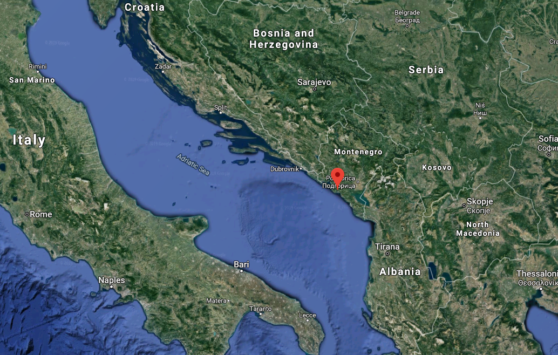 Two Mafia factions in Kotor, Montenegro—where the ship’s Second Mate Ivan Durasevic and three other implicated seamen are from— have been at war across Europe for several years, with dozens of casualties spread all across Europe.
Two Mafia factions in Kotor, Montenegro—where the ship’s Second Mate Ivan Durasevic and three other implicated seamen are from— have been at war across Europe for several years, with dozens of casualties spread all across Europe.
And Russian oligarch Oleg Deripaska— the Oliver North of Russiagate, and no stranger to drug trafficking—has an outsized presence in Kotor, where he built a $500 million dollar resort and lavish billionaire’s yacht club on the shores of the Adriatic.
He’s even suspected of being behind an unsuccessful coup. According to newspapers in Montenegro, Đurašević is from Kotor, where a vicious mafia war is currently ongoing.
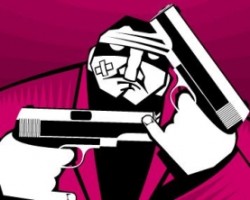 A typical headline: “THIRTY YOUNG PEOPLE WITH A DIPLOMA FROM THE LOCAL, WELL-KNOWN MARITIME FACULTY ARE IN PRISONS AROUND THE WORLD, SUSPECTED OF SMUGGLING COCAINE, MEMBERS OF A CRIMINAL CLAN FROM KOTOR.”
A typical headline: “THIRTY YOUNG PEOPLE WITH A DIPLOMA FROM THE LOCAL, WELL-KNOWN MARITIME FACULTY ARE IN PRISONS AROUND THE WORLD, SUSPECTED OF SMUGGLING COCAINE, MEMBERS OF A CRIMINAL CLAN FROM KOTOR.”
“The war of these clans extends from Valencia, through the Netherlands and Vienna, to Belgrade, Budva, Kotor, Bar and Podgorica. At least 40 people have been murdered.”
A looming presence in Montenegro
The looming presence in Montenegro of Russian oligarch Oleg Deripaska is behind the 20-ton drug move. It was a flare going up in the dark, signaling that we are finally entering the season of Russiagate.
I began hearing names come up in stories about Russiagate whose criminal careers I’ve been tracking for 10, 15, or in some cases 20 years. Major gangsters, like Oleg Deripaska. I became aware of his criminal activities in the Western hemisphere in 2005.
That’s because Deripaska was in business with the family of Guyanese drug pilot Michael Francis Brassington, who flew weekly drug flights during the year 2000 for Wally Hilliard, the “retired insurance executive” who owned Huffman Aviation in Venice, where Mohamed Atta learned to fly. Brassington had undoubted connections with the DEA.
Deripaska’s RusAl, one of the world’s largest aluminum companies, cut a billion dollar deal with Brassington’s family to privatize Guyana’s bauxite resources.
That Oleg Deripaska was in business with an influential family in Guyana whose son just happened to be a notorious drug pilot is unlikely to have been a coincidence.
Years later, when Deripaska became famous during the opening round of Russiagate for paying millions to Paul Manafort for unspecified duties, I remembered that I had first heard of him as someone who was suspiciously close to an infamous drug pilot
The 20-ton drug move was an act of desperation. Like pushing all your chips onto the roulette table at once and betting on red. Somebody needed a lot of money, and fast.
Then…somebody, or something, stopped it from happening.
It’s happened before
The attempted billion dollar drug move on the two-block long container ship MSC Gayane through the Port of Philadelphia is not the first time an embattled American President has used drugs to raise desperately-needed cash.
That honor fell to Richard Nixon during Watergate. The recent Philly bust is like deja vu all over again. It’s a perfect example of history repeating itself.
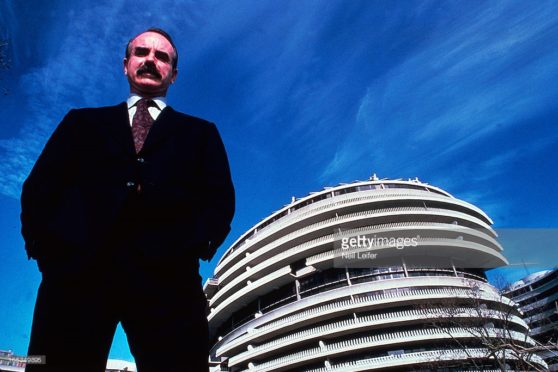
Ten days after the arrest of the Watergate burglars in the Watergate Hotel on July 1, 1972, the TV series Bewitched aired its final episode, the U.S. Attorney General, John Mitchell, resigned as chairman of Richard Nixon’s re-election campaign, and lifelong CIA pilot and drug smuggler Barry Seal was arrested on the tarmac of an airport in New Orleans as he prepared to fly a DC-6 cargo plane carrying enough C4 plastic explosive to blow the island of Cuba halfway up the Florida Keys.
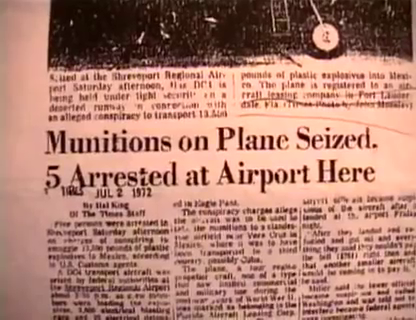 Reporters at the time labeled it the Mexican Connection. Today a few aging baby boomers may remember it was how beleaguered President Richard Nixon was raising millions to buy the silence of the Watergate burglars, who were sitting in jail in the District of Colombia awaiting trial.
Reporters at the time labeled it the Mexican Connection. Today a few aging baby boomers may remember it was how beleaguered President Richard Nixon was raising millions to buy the silence of the Watergate burglars, who were sitting in jail in the District of Colombia awaiting trial.
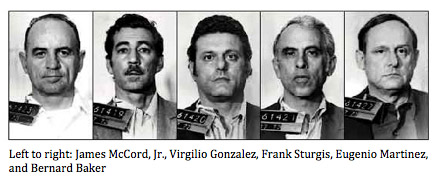 Barry Seal was to fly the explosives to Mexico, and exchange it for heroin, which could be converted into ready cash when he returned to the States.
Barry Seal was to fly the explosives to Mexico, and exchange it for heroin, which could be converted into ready cash when he returned to the States.
The template laid down by Barry Seal’s operation to raise cash to pay for the silence of the Watergate burglars is likely what played out in Philadelphia.
If you noticed something odd about the seizure of the 20 tons of cocaine, it was this: The drug move was busted, which rarely happens in professional and officially-sanctioned drug trafficking.America’s cocaine shelf is regularly re-stocked with less drama than Proctor & Gamble re-stocking Charmin in supermarkets.
What happened 40 years ago to Richard Nixon just happened again, this time to Donald Trump. Something intervened to bust up the transaction.
Philly was the second largest. Meet the largest
Newspapers reported that the 20-ton drug bust in Philly was the second largest in American history, a valuable piece of information, because it calls attention to the long-forgotten big bust which was the largest-ever.
And although it happened 30 years ago, it offers what may be the clearest snapshot ever taken of the U.S. drug trade.
Local cops in Sylmar, a quiet suburban community tucked into the farthest reaches of Los Angeles’ San Fernando Valley, received an anonymous tip about suspicious behavior at a nondescript self-storage franchise.
It was September 28, 1989. Inside the Sylmar self-storage facility, astonished agents found 21 tons of cocaine, which they valued at $6 billion dollars.
The man running the operation was arrested at the Flamingo Hilton hotel in Las Vegas. Carlos Tapia, of Chihuahua, Mexico, was a 69-year old retired Mexican customs inspector. The cocaine connection in Mexico was to a Juarez cartel trafficker, a former high-ranking Mexican federal police chief.
Caught red-handed. Did nobody notice?
It was prima facie evidence of the protected nature of the drug trafficking involved. Especially noteworthy was the industrial scale of the operation. The drug business was obviously humming along at the time. And it’s only gotten bigger—much bigger—since.
The coke was hauled overland from El Paso to Los Angeles on huge tractor-trailer trucks. Prosecutors said the group had smuggled—just in the previous four months alone—77 tons of cocaine.
At that pace the facility—presumably just one of several spread across three time zones —would have been distributing more than 200 tons of cocaine a year.
Also, notebooks discovered during the raids showed that the drugs the operation was warehousing came from both the Cali and the Medellin cartel, which were supposedly at war at the time.
But the most curious fact is the $6 billion valuation involved. The Philly bust, was, at 20 tons almost the same size. Yet it was valued by authorities at $1.3 billion.
If cocaine is five times cheaper today than it was 30 years ago, the US has wasted the more than a trillion dollars spent so far on the War on Drugs.
Its finally time for Russiagate
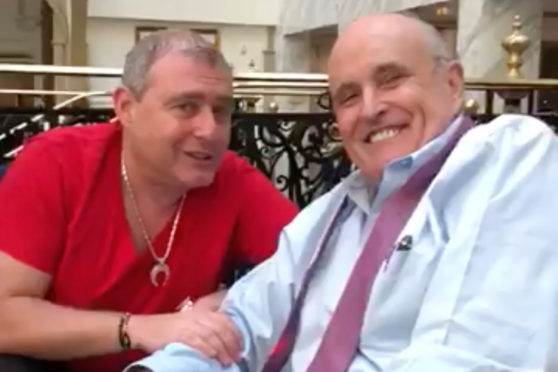 Remember John Bolton? He reportedly got into a tense exchange with Gordon D. Sondland, the Trump donor turned ambassador, who was working with Giuliani, the president’s personal lawyer, to press Ukraine to investigate Democrats.
Remember John Bolton? He reportedly got into a tense exchange with Gordon D. Sondland, the Trump donor turned ambassador, who was working with Giuliani, the president’s personal lawyer, to press Ukraine to investigate Democrats.
Bolton said, “ I’m not part of whatever drug move Rudy is involved in.”
For more than three years—since at least November 2016—Americans have known in their bones that— in the words of a famous Southern lawman it was my pleasure to have known, even though he was stubbornly on the wrong side of history—”Things ain’t always been jes’ right around here.”
But because of the until-now successful attempts to keep the truth from becoming public—with even the Mueller report still being redacted—not much could be done. Until now.
Donald Trump has had his sanction removed. He no longer has the stroke to direct the public conversation towards whatever he wants it to be about.
Because of that Russiagate is about to burst over the banks with the full force of three years of pent-up pressure behind it.
It’s finally time for Russiagate. Russiagate starts now.

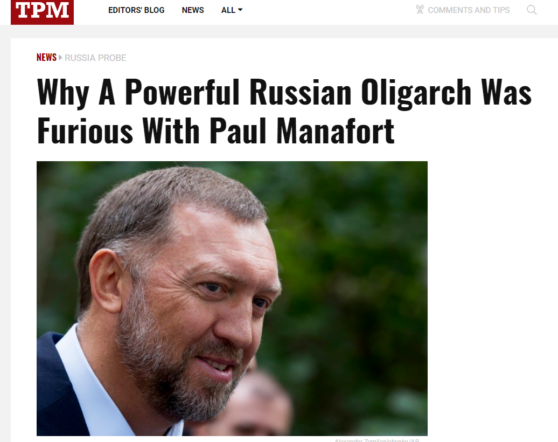
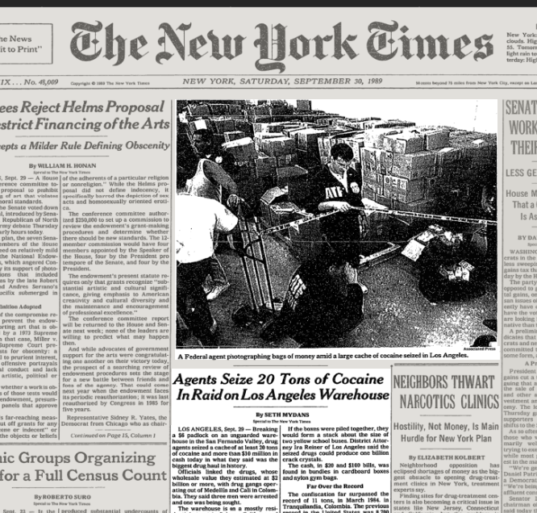
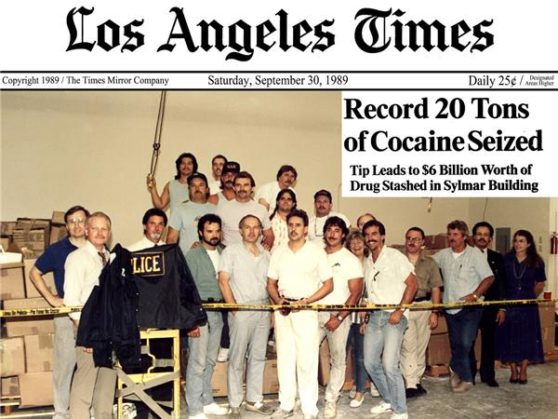
One response to “Cartel behind 20-ton drug move in Philadelphia to skate on charges”
You have been investigating this for decades. What do you think can enable governments to control the drug trade, so that it can’t harm the public? Is it even possible? These are truly amazing stories.